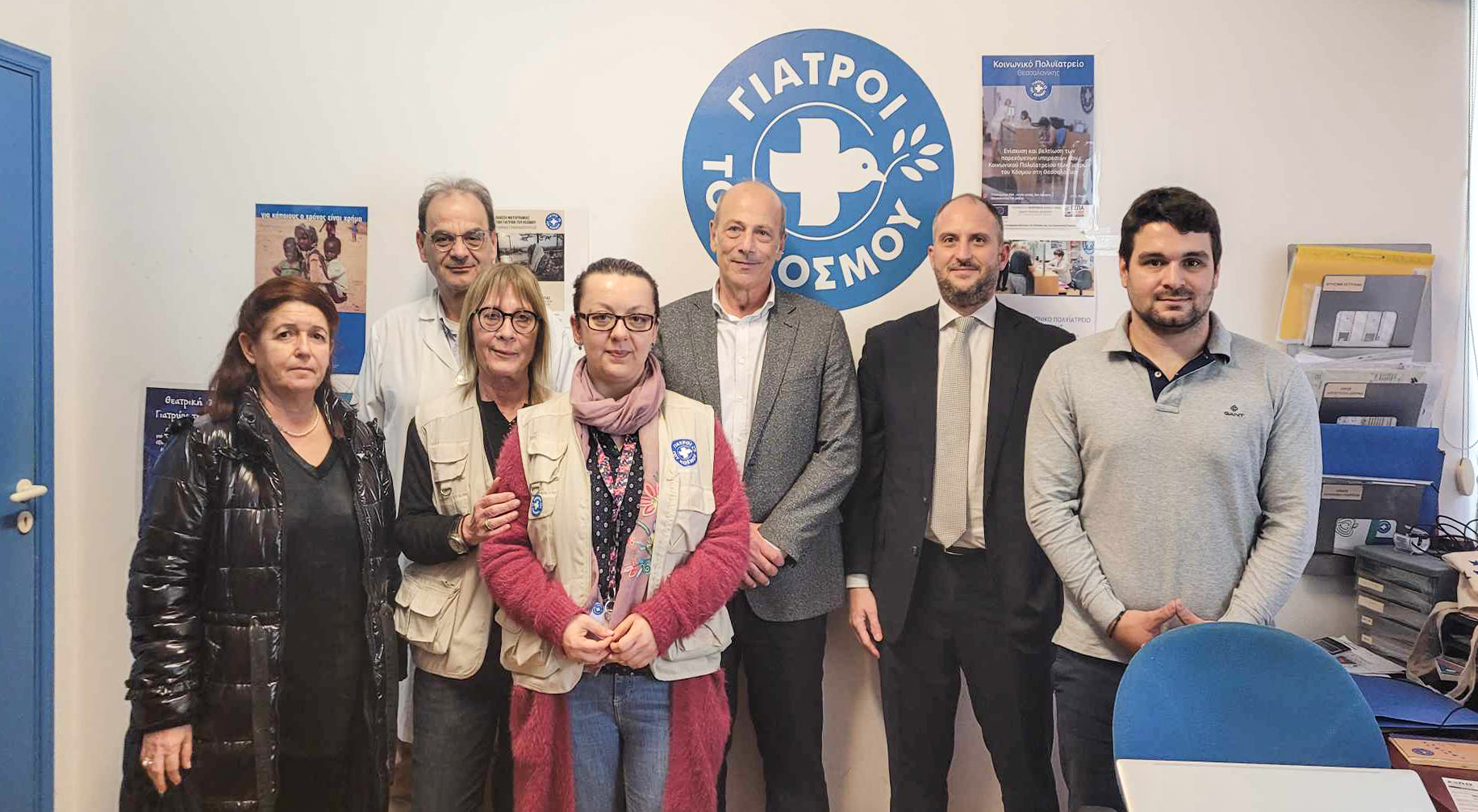
For the support of socially vulnerable groups in Thessaloniki
Médecins du Monde Greece and the 3rd Department of Cardiology of the Aristotle University of Thessaloniki recently signed a three-year Memorandum of Understanding. The MoU was signed between the President of MdM Greece, Ms. Charikleia Tziouvaras, and the Director of the 3rd Cardiology Clinic of the Hippocratic Hospital of Thessaloniki and Professor of Cardiology of the Aristotle University of Thessaloniki, Mr. Vasilis Vasilikos.
In the framework of the Memorandum of Understanding, MdM Greece undertakes the initial medical assessment and provision of primary health care to vulnerable social groups in Thessaloniki. Through a standardized “referral pathway”, MdM Greece will refer patients receiving services from medical specialists (members of the Thessaloniki Medical Association), based on the capabilities of the 3rd Department of Cardiology.
In addition, the MdM Greece teams will assess the need for referral to a tertiary health structure following a cardiological or pathological assessment, and will contact the reference persons designated by the 3rd Department of Cardiology, in order to receive the detailed “referral note” that the volunteer doctor of MdM will prepare.
For its part, the 3rd Department of Cardiology undertakes to support vulnerable patients of MdM Greece through the provision of tertiary health care services to cases referred by medical specialists, volunteers of MdM Greece. At the same time, the two parts will organise “groups” for vulnerable groupswithin the framework of the “Cardio School” seminar programme implemented by the Department of Cardiology.
Finally, if the opportunity arises, the Clinic will support the Social Polyclinic of MdM Greece in Thessaloniki, through the participation of its medical specialists in the volunteer clinics of the Organization.
The collaboration between MdM Greece and the 3rd Department of Cardiology of the Aristotle University of Thessaloniki constitutes a valuable collaboration. It aims to support and improve the quality of life of socially vulnerable groups in Thessaloniki, providing access to health services and medical care, as well as through the joint actions that will be implemented. Collaborations like this give us the scientific background that social vulnerability polyclinics need.